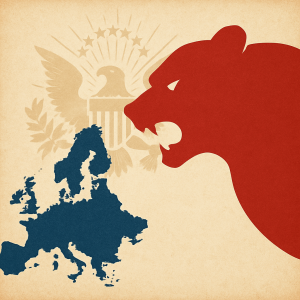When they deal with the future, polls are no more reliable than forecasts. This is the first, universal, conclusion to be drawn from the Turkish elections, and the other two are no less universal, for normally, hyperinflation, the stifling of liberties and the corruption boom should have inflicted the most humiliating defeat on Recep Erdoğan and his party.
And yet, if this did not happen at all, if half of Turkey remains loyal to them despite everything, it is because elections are no longer played out primarily on the economy. What Bill Clinton and several generations of political scientists before him professed is no longer true, because the world has become so uncertain and its developments so profoundly anxiety-provoking that almost everywhere one in two voters seeks refuge in the shelter of national borders and a mythical past, in a rejection of the other and the resurrection of nationalism.
In Turkey as in the United States, in Africa or in the countries of the European Union, the rapid liberation of women and the evolution of morals are generating such a complete disarray in whole sections of our societies that it encourages a desire to return to outdated norms, which is called the “reaction”.
Long marginalised, the reactionary right has the wind in its sails everywhere and, in all the countries towards which they are heading, the waves of migration are giving rise, in parallel, to a fear of foreigners, a xenophobia that feeds racism and fantasies about the “great replacement” of a familiar environment by other civilisations.
In all countries, albeit to varying degrees, a same phenomenon of rising and overlapping fears combines with a panic over the collapse of known religious and family norms and over the challenge to new liberties posed by the rise of various waves of immigration, which accept abortion just as reluctantly as secularism and homosexuality.
And that is not all. At a time when they are discovering that they are no longer totally dominant and that the economic growth of new countries can carry imperial ambitions, Western elites and populations are reverting to protectionism and fear of foreign worlds. It is either them or us, they say to themselves more and more, and facing them, nations that they had colonised or marginalised openly dream of a historical revenge that would overturn the international balances.
We are back to an era of international defiance and, from the United States to Turkey, from countries as tiny as Israel or Hungary to countries as immense as India or China, a reactionary nationalism is cementing new right-wing groups, whether they be Trumpist, Orbánist, Erdoğanist, Putinist, Netanyahist or Bolsonarist. These right-wing groups are declining or progressing according to economic, political or international situations, but whether or not the moment is favourable to them, they exist and are rooted in the regrouping of the extreme rights, of the hard rights, of the most fragile classes and Christian, Muslim, Jewish or Buddhist fundamentalists.
We have just seen this in Turkey, but we have also seen, as we did yesterday in Israel and Hungary, that it was not enough to bring together democrats from all segments of the political spectrum to form new forces capable of opposing these new rights. This is the third of the universal lessons of the Turkish election. In the face of fear and the flight into the past, we need more than the breath of freedom, the love of modernity and the banner of democracy. It needs a programme, a moderation and a vision that reassures enough to convince and to prevail.



